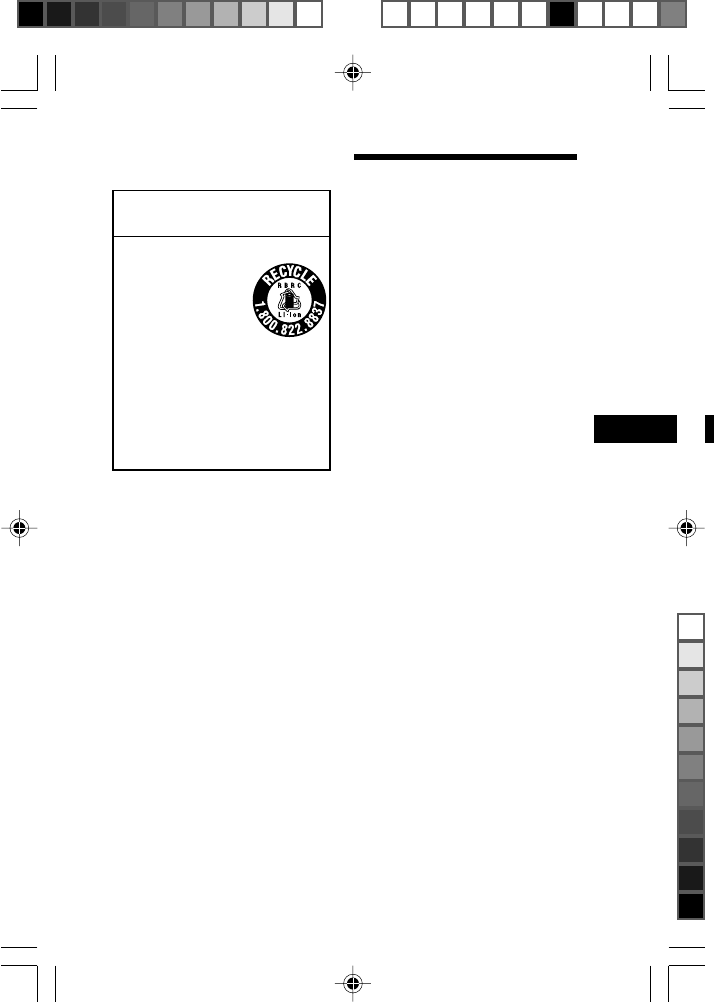
3
US
US
DR-BT10CX_U2 [US,ES] 2-698-598-41(1)
Table Of Contents
Welcome! .......................... 4
3 steps to BLUETOOTH
function................................. 5
Location and Function of
Parts............................... 6
Charging the unit ............. 7
Pairing ............................... 9
What is pairing? ........................ 9
Procedures of pairing ................ 9
Wearing the headset ...... 11
Indications of
BLUETOOTH function
.. 12
Listening to music ......... 13
Calling ............................. 15
Controlling the BLUETOOTH
mobile phone – HFP, HSP .. 17
Calling while playing
back music .................. 18
Disposing of the unit ..... 19
Precautions .................... 20
What is BLUETOOTH
technology? ................ 22
Troubleshooting ............. 23
Initializing the unit ......... 24
Specifications ................. 25
For the customers in the USA
and Canada
RECYCLING LITHIUM-ION
BATTERIES
Lithium-Ion batteries are recyclable.
You can help preserve
our environment by
returning your used
rechargeable batteries to
the collection and
recycling location nearest
you.
For more information regarding recycling
of rechargeable batteries, call toll free 1-
800-822-8837, or visit
http://www.rbrc.org/
Caution: Do not handle damaged or
leaking Lithium-Ion batteries.
Pour les utilisateurs au Canada
Informations
Cet appareil est conforme à la section 15 de la
réglementation FCC ainsi qu’à la RSS-Gen de la
réglementation IC. Son utilisation est autorisée
seulement aux conditions suivantes : (1) il ne doit
pas produire de brouillage et (2) l’utilisateur du
dispositif doit être prêt à accepter tout brouillage
radioeléctrique reçu, même si ce brouillage est
susceptible de compromettre le fonctionnement du
dispositif.
Vous devez savoir que tout changement ou
toute modification non expressément
approuvé dans ce mode d’emploi risque
d’annuler votre pouvoir d’utiliser cet appareil.
Cet émetteur est conforme aux limitations
concernant l’exposition aux radiations établies
par la FCC/IC définies dans un environnement
non contrôlé ainsi qu’aux directives relatives à
l’exposition aux fréquences radio (RF) FCC
du supplément C du bulletin OET65 et au
règlement RSS-102 relatif à l’exposition aux
radiofréquences (RF) IC. Cet équipement
présente des niveaux d’énergie RF très bas
considérés comme conformes et ne nécessite
pas de test du débit d’absorption spécifique
(SAR).


















